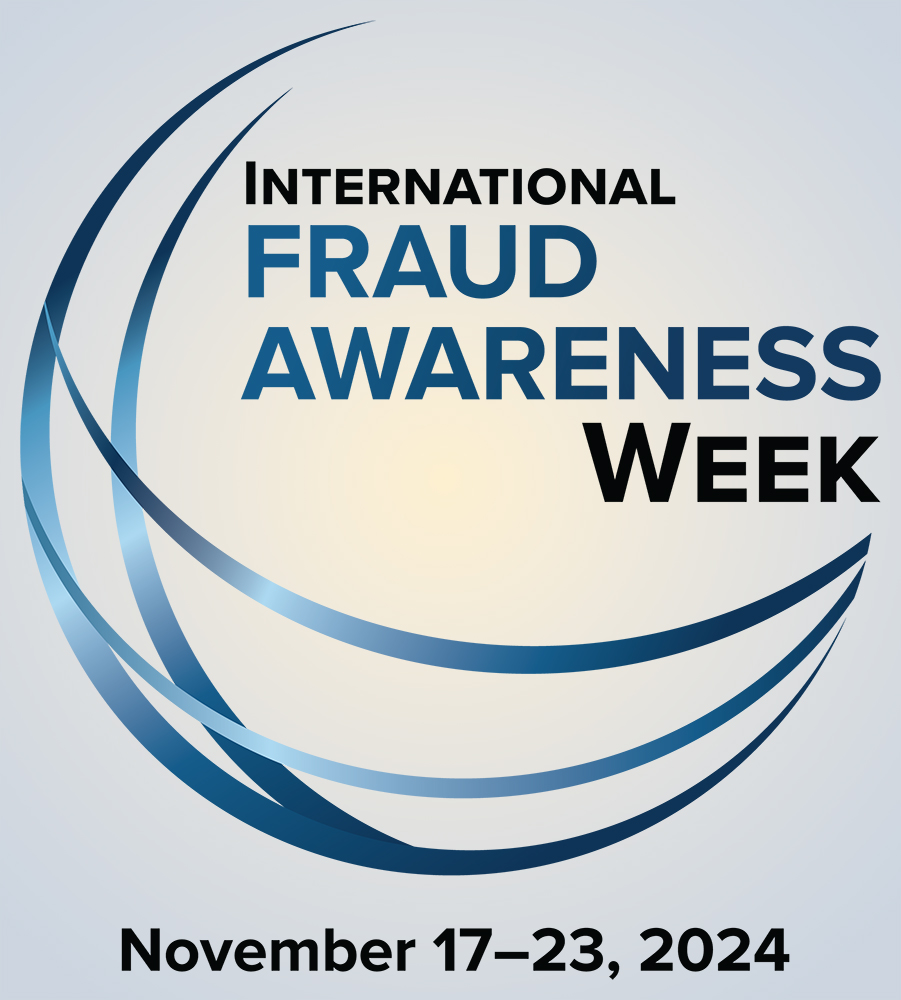 Each November, organizations around the world pledge to increase fraud awareness in their workplaces and communities. International Fraud Awareness Week is a global campaign led by the Association of Certified Fraud Examiners to highlight the importance of fraud detection and prevention.
Each November, organizations around the world pledge to increase fraud awareness in their workplaces and communities. International Fraud Awareness Week is a global campaign led by the Association of Certified Fraud Examiners to highlight the importance of fraud detection and prevention.
As a broader public sector institution, the University must manage fraud risk to protect against the loss of public funds and public trust. In support of Fraud Awareness Week, the University is taking the opportunity to remind the campus community about the shared responsibility to prevent fraud.
What is fraud?
The term fraud encompasses intentional actions that are meant to deceive for financial or personal gain. Occupational fraud refers to fraud that is committed by people who work for or do business with an organization. Occupational fraud can be classified into three main categories: Asset Misappropriation, Corruption, and Financial Statement Fraud.
Why should we care about fraud?
The association’s 2024 Report to the Nations estimates that the typical organization loses five per cent of its revenue annually to fraud. Losses from fraud can place a significant strain on the organization’s resources and may result in budget reductions, reputational damage, and weakened public trust in the institution.
What can you do to help?
Every member of the campus community has a role to play in preventing fraud. You can help protect the University’s finances and its reputation from harm by remaining alert to potential fraud and reporting if you suspect fraud is occurring.
Employees are encouraged to report suspected fraud directly to the academic or administrative unit responsible for the area of concern or to their immediate supervisor or reporting vice-president. For employees who may be uncomfortable disclosing through these channels, the University has engaged the Grant Thornton CARE team to provide an independent service for employees to confidentially or anonymously report suspected financial misconduct via an online reporting program, telephone, email, or ground mail.
For further details on how to report, visit Whistleblower Safe Disclosure Reporting Program | Internal Audit.
Interested in learning more about fraud? Additional information is available at Resources: Fraud Awareness | Internal Audit or contact Internal Audit at kimlass@uwindsor.ca to schedule a fraud training session for your department.
